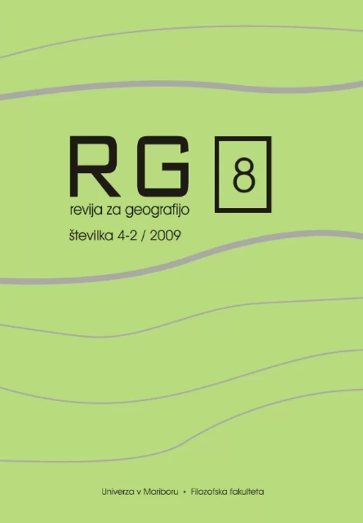A Life Histories Approach to Gold Prospecting and Frontier Farming in the Brazilian Amazon
DOI:
https://doi.org/10.18690/rg.4.2.3187Keywords:
Amazon, frontier farming, gold prospecting, quality of lifeAbstract
In contrast to the usual faceless macro-economic and sociological treatment of development cycles in the Amazon, which at best offer generalities about ‘social actors’ labelled ‘peasants’, ‘ranchers’ and ‘trans-national corporations’, who represent the abstract categories of labour and globalised capital, a human face to frontier processes is offered here. The social and economic sustainability of the shifting back and forth from gold prospecting to family farming on the frontier is evaluated through the eyes of those who experienced it so producing an un-romanticised portrait of prospecting in western Pará during the gold rush of 1961-1990 as well as of frontier farming today. The economic origin and past quality of life of those who left local farms or came from the distant rural zones of impoverished Maranhão are compared and contrasted with that of their passage through the degrading living conditions of gold prospecting and finally with their current situation as struggling but independent frontier farmers in Itaituba and Santarém municipalities.
Downloads
References
Andrade, M.C. 1973: A Terra e o Homem no Nordeste. São Paulo: Brasiliense.
Caldas, M., Walker, R., Perz, S., Arima, E., Aldrich, S. and Simmons, C. 2007: Theorizing land cover and use change: the peasant economy of colonization in the Amazon Basin. Annals of the Association of American Geographers 97(1): 86–110.
Devriendt, L., Boulton, A., Brunn, S., Derudder, B. and Witlox, F. 2009: Major cities in the information world: monitoring cyberspace in real-time. GaWC Research Bulletin 308. www.iboro.ac.uk/gawc/rb308.
Eriksen, T.H. 2001: Small Places – Large Issues. London: Pluto.
Escobar, A. 2007: The ‘ontological turn’ in social theory. Transactions of the Institute of British Geographers 32: 106–111.
Hoefle, S.W. 2006: Eliminating scale and killing the goose that laid the golden egg? Transactions of the Institute of British Geographers 31: 238–243.
Jonas, A.E.G. 2006: Pro-scale: further reflections on the ‘scale debate’. Transactions of the Institute of British Geographers 31: 399–406.
Jones III, J.P., Woodward, K. and Marston, S.A. 2007: Situating flatness. Transactions of the Institute of British Geographers 32: 264–276.
Leitner, H. and Miller, B. 2007: Scale and the limitations of ontological debate: a commentary on Marston, Jones and Woodward. Transactions of the Institute of British Geographers 32: 116–125.
Marcus, G.E. 1995: Ethnography in/of the world system: the emergence of multi-sited ethnography. Annual Review of Anthropology 24: 95-117. Palo Alto.
Marston, S.A., Jones III, J.P. and Woodward, K. 2005: Human geography without scale. Transactions of the Institute of British Geographers 3: 416–432.
MINTER (Ministério do Interior). 1973: Plano Integrado contra os Efeitos da Seca no Nordeste. Brasília.
Rabello, E.L. 2006: 20 Anos nos Garimpos do Tapajós. Santarém.
Taylor, P.J. 1985: Political Geography. London: Longman.
The error of developmentalism in Human Geography. In, D. Gregory and R. Walford (eds.) Horizons in Human Geography, p. 303-319. London: MacMillan. 1989.
Problemizing city/state relations: towards a geohistorical understanding of contemporary globalization. Transactions of the Institute of British Geographers 32: 133-150. 2007.
Thissen, F. 2004: After the flood: life path and opinions about rural policies. In Bicalho, A.M.S.M. and Hoefle, S.W. (eds.), The Regional Dimension and Contemporary Challenges to Rural Sustainability, p. 410-419. Rio de Janeiro: LAGET-UFRJ/CSRS-IGU.
Downloads
Published
Issue
Section
License
Copyright (c) 2009 Scott William Hoefle

This work is licensed under a Creative Commons Attribution 4.0 International License.
